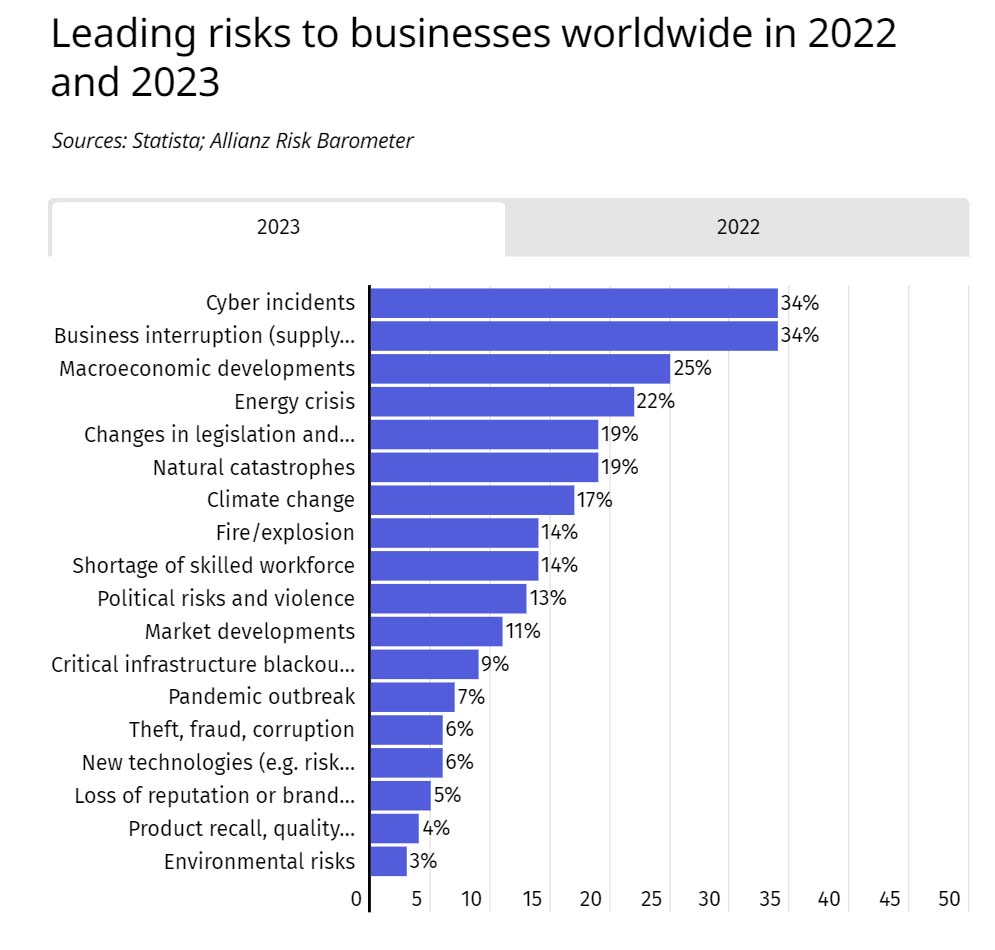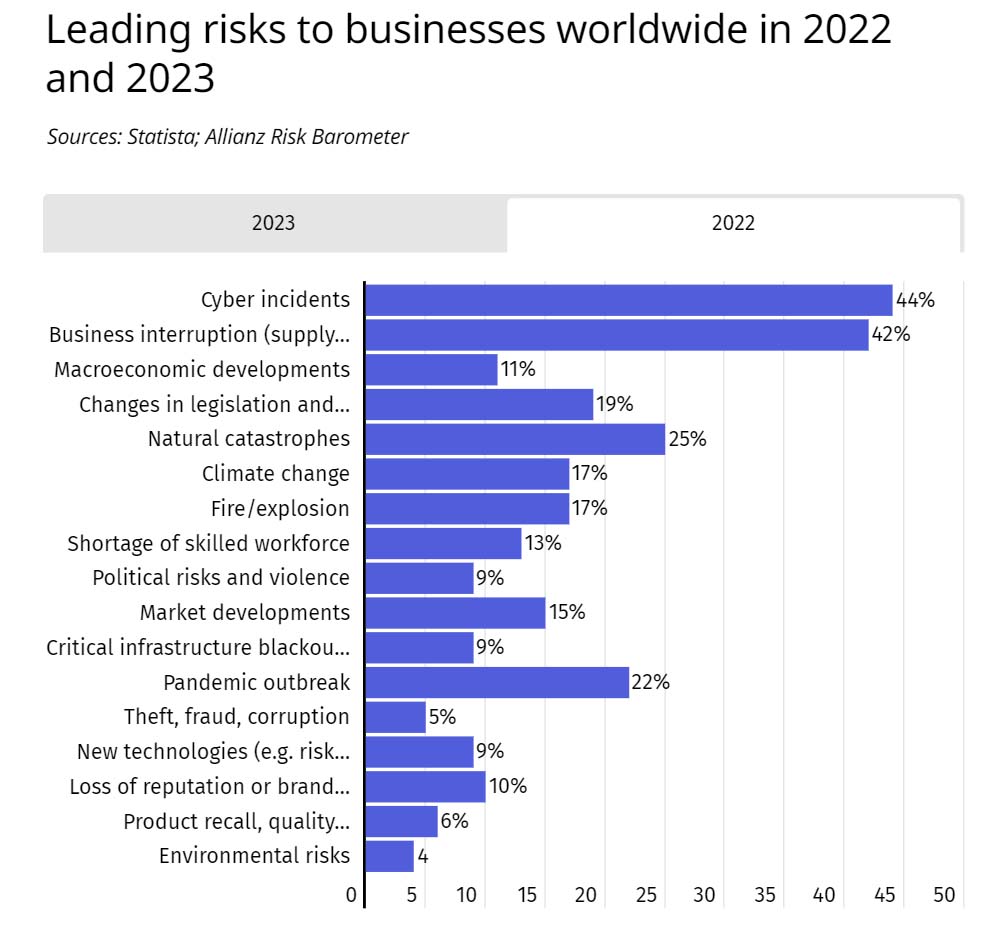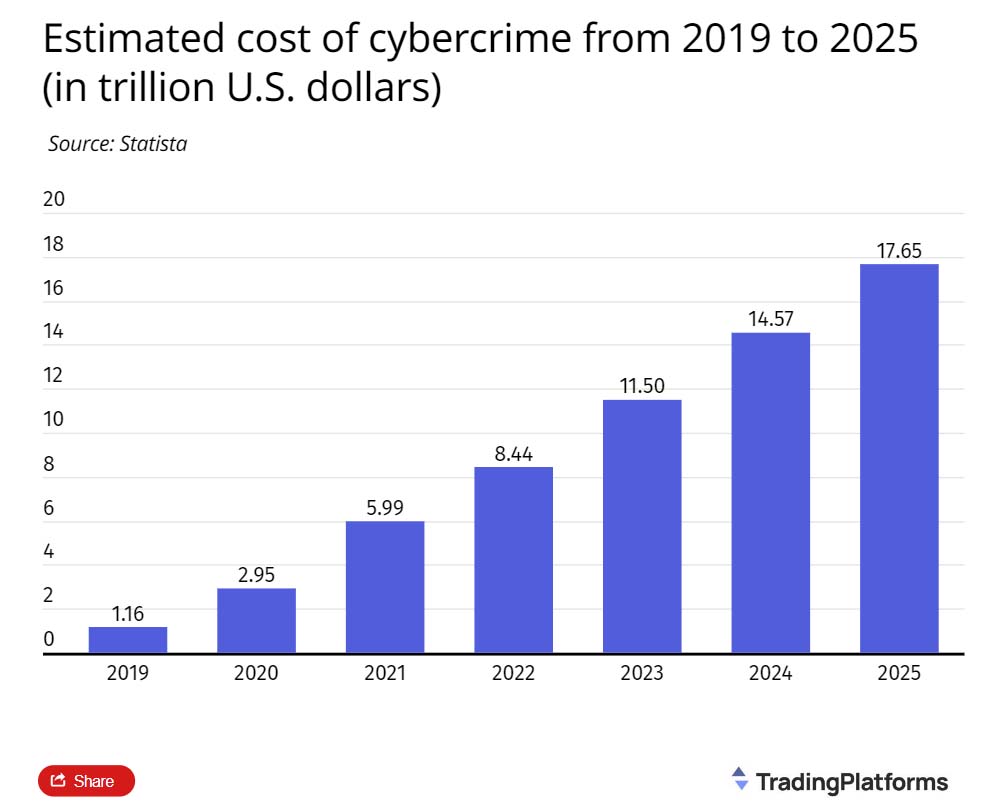Despite many headwinds and challenges the business sector faces in 2023, cybercrime remains the number one threat.
According to data presented by TradingPlatforms.com, with a 34% share among respondents, cybercrime is the biggest risk to businesses in 2023, ahead of supply issues and inflation.
For years, cybercrime has been one of the biggest risks to businesses, compromising sensitive data and causing brutal financial losses to companies worldwide.
Companies and organisations are losing billions due to cybercrime each year. Although many significantly boosted cybersecurity budgets, data breaches, phishing, ransomware attacks, and cyber espionage are still a huge threat to their operations. 
According to the Allianz Risk Barometer survey conducted among risk management experts worldwide, although cyber incidents have a smaller share among respondents than in 2022, they remain the leading risk to businesses.
Last year, 44% of those surveyed named malware and ransomware attacks, IT failure or outages, and data breaches as the biggest threat to their companies and organisations, or 10% more than in 2023. 
Business interruption or supply chain disruption is the second-largest threat this year, with a 34% share among respondents. Macroeconomic development, including inflation, deflation and monetary policies, climbed five spots and became the third-largest risk for businesses with a 25% share, up from 11% a year ago.
Energy crisis and changes in legislation and regulation round up the top five list, with a 22% and 19% share among respondents, respectively. The survey also revealed companies and organisations are the least worried about the loss of reputation, product recalls, and environmental risks.
Cybercrime cost to jump 40%
According to Statista data, companies and organisations have every right to be worried about cybercrime and its devastating effect on their operations.
In just three years, between 2016 and 2019, global cybercrime cost nearly doubled and hit $1.16 trln.
These costs include stolen money, damage and destruction of data, lost productivity, stealing of intellectual property, theft of personal or financial data, post-attack disruption to the ordinary course of business, restoration, and deletion of hacked data and systems, and reputational harm.
After Covid-19 hit the figures exploded.
With companies and organisations worldwide speeding up digitalisation, the annual cybercrime cost skyrocketed 155% year-over-year to $2.95 trln in 2020. A year later, this figure more than doubled and hit around $6 trln.
The Statista data show cybercrime inflicted damages totaling $8.44 trln last year, or 630% more than in 2019.
If measured as a country, cybercrime would be the world’s third-largest economy after the US and China.
Statista expects global cybercrime cost to swell by another 40% year-over-year and hit $11.5 trln in 2023. 










